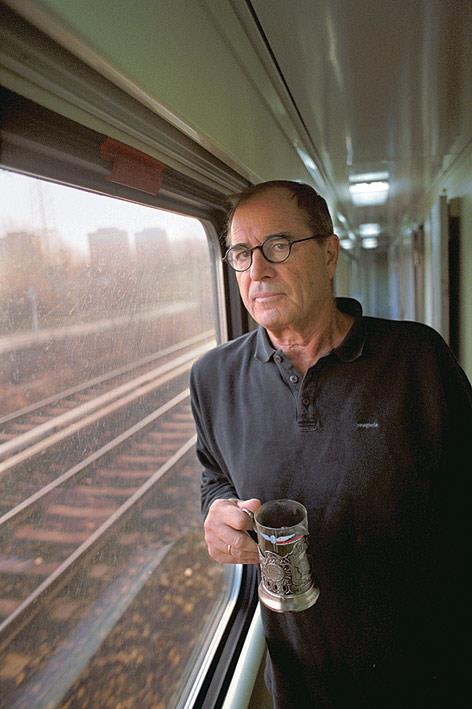OT: In The Elephanta Suite, you examine the lives of visitors and tourists to India. Why did you choose to look at the outsiders?
Paul Theroux: I chose Americans as the central characters in these stories because I cannot pretend to know much about the inner life of Indians. I have made the dramas of Americans abroad one of my obsessive subjects, and in this sense I am a great fan of the writing of Paul Bowles (The Sheltering Sky and many other works) and Graham Greene, whose characters are English but in alien surroundings.
OT: You have travelled through India and Asia several times, including long train journeys. Could you tell us about your most unusual experiences?
Paul Theroux: I live and travel in the hope that I will meet someone — a trader, a desperate youth, an enigmatic woman, an Ancient Mariner, who will fix me with a glittering eye and say, “A strange thing once happened to me…” My travel books are full of such encounters. A man in Cambodia said to me last year, as an opening, “I did something in Siem Reap that I’ve never done before in my life…” See my new book, Ghost Train to the Eastern Star, for the whole story.
OT: So that’s the revisit of your classic The Great Railway Bazaar, retracing your steps through the countries you wrote about?
Paul Theroux: Yes, it is a revisiting. It was a tremendously enlightening experience. I was startled by the changes — in many countries, and in myself. I was also startled by the changelessness of, say, Burma. What is most striking is the materialism in India, Southeast Asia and China — places that, 35 years ago, were traditional societies, scraping along, are now countries full of rapacious consumers; not a happy sight, but perhaps inevitable. Where will it lead? Ask me in 20 years.
OT: Have you seen any great travel writing from India?
Paul Theroux: Vikram Seth’s From Heaven’s Lake and Nirad Chaudhuri’s Autobiography of an Unknown Indian both have a powerful sense of place and time. But much of Indian writing that I’ve seen is concerned with family life and seems to me more a sort of anthropology.
OT: And any great travel writing about India?
Paul Theroux: The obvious books are by Naipaul, Forster and others, but these describe surfaces and are probably very irritating to Indians — as irritating as books by Indians on American life, which, to me, are full of howlers.
OT: You’ve just led a workshop with travel-writers-in-the-making at Chennai. Do you often do that kind of thing?
Paul Theroux: I seldom do this sort of thing, which is why I volunteered. I wanted to meet unpublished writers and read what they’d written. A lucky teacher learns from his or her students and when they stop learning it’s time to find a new job.
Leave a Reply
You must be logged in to post a comment.


